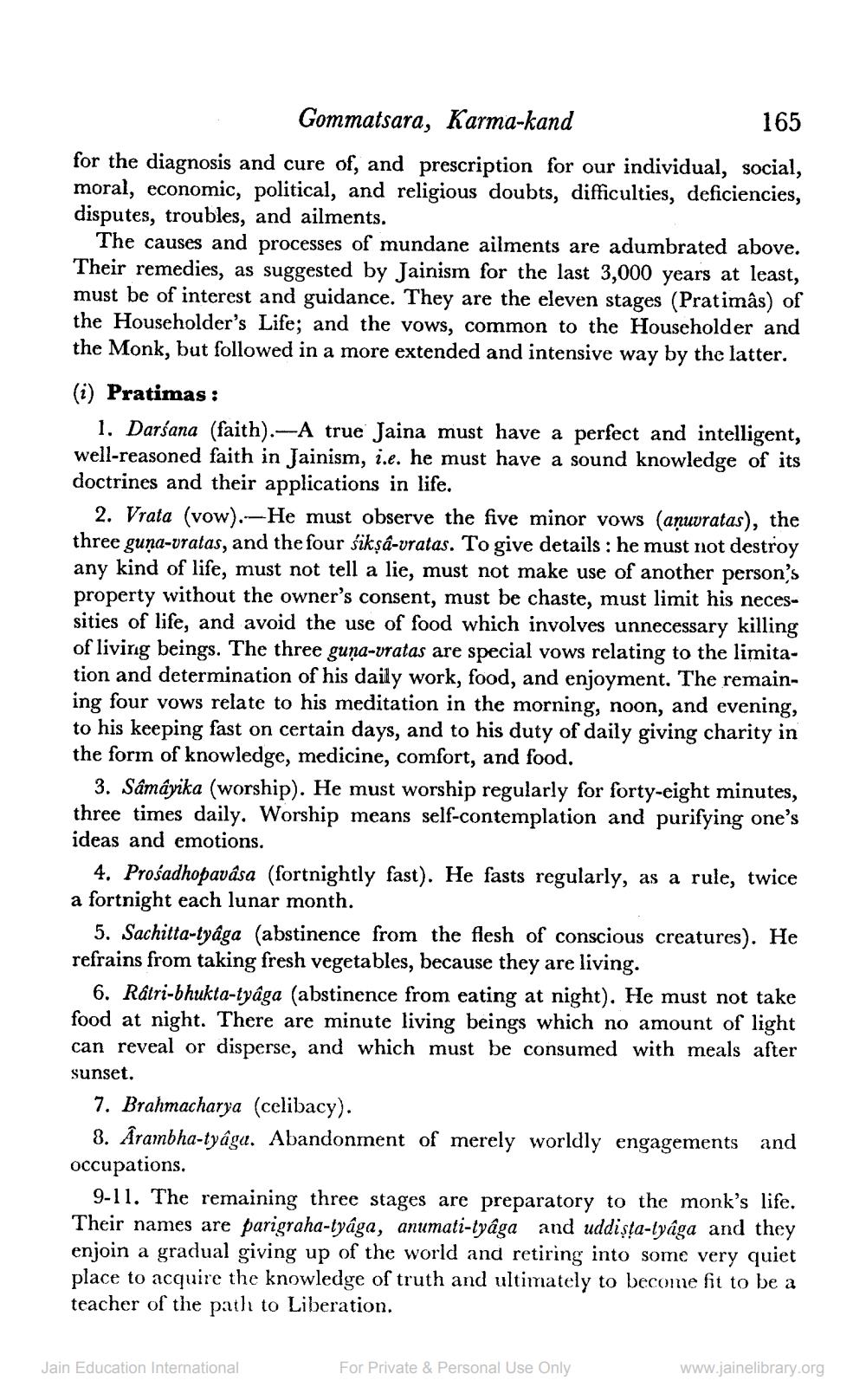________________
Gommatsara, Karma-kand
165 for the diagnosis and cure of, and prescription for our individual, social, moral, economic, political, and religious doubts, difficulties, deficiencies, disputes, troubles, and ailments.
The causes and processes of mundane ailments are adumbrated above. Their remedies, as suggested by Jainism for the last 3,000 years at least, must be of interest and guidance. They are the eleven stages (Pratimâs) of the Householder's Life; and the vows, common to the Householder and the Monk, but followed in a more extended and intensive way by the latter.
(i) Pratimas:
1. Darśana (faith).—A true Jaina must have a perfect and intelligent, well-reasoned faith in Jainism, i.e. he must have a sound knowledge of its doctrines and their applications in life.
2. Vrata (vow).—He must observe the five minor vows (aņuvratas), the three guna-vratas, and the four sikșa-vratas. To give details : he must not destroy any kind of life, must not tell a lie, must not make use of another person's property without the owner's consent, must be chaste, must limit his necessities of life, and avoid the use of food which involves unnecessary killing of living beings. The three guņa-vratas are special vows relating to the limitation and determination of his daily work, food, and enjoyment. The remaining four vows relate to his meditation in the morning, noon, and evening, to his keeping fast on certain days, and to his duty of daily giving charity in the form of knowledge, medicine, comfort, and food.
3. Sâmâyika (worship). He must worship regularly for forty-eight minutes, three times daily. Worship means self-contemplation and purifying one's ideas and emotions.
4. Prośadhopavása (fortnightly fast). He fasts regularly, as a rule, twice a fortnight each lunar month.
5. Sachitta-tyága (abstinence from the flesh of conscious creatures). He refrains from taking fresh vegetables, because they are living.
6. Rätri-bhukta-tyâga (abstinence from eating at night). He must not take food at night. There are minute living beings which no amount of light can reveal or disperse, and which must be consumed with meals after sunset.
7. Brahmacharya (celibacy).
8. Arambha-tyága. Abandonment of merely worldly engagements and occupations.
9-11. The remaining three stages are preparatory to the monk's life. Their names are parigraha-tyága, anumati-tyâga and uddista-tyaga and they enjoin a gradual giving up of the world and retiring into some very quiet place to acquire the knowledge of truth and ultimately to become fit to be a teacher of the path to Liberation.
Jain Education International
For Private & Personal Use Only
www.jainelibrary.org




